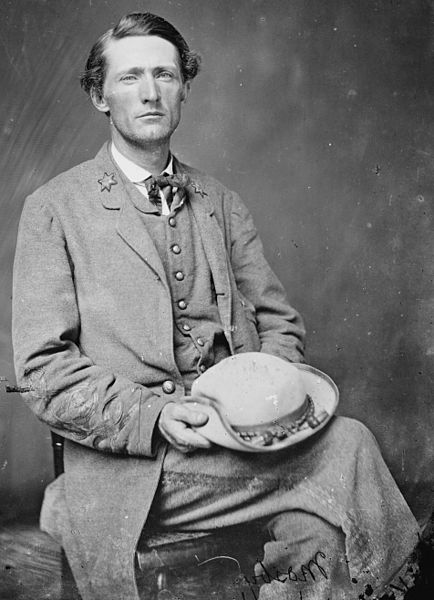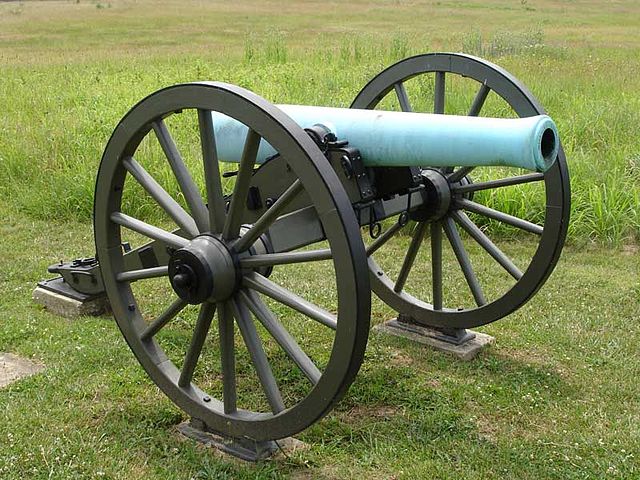John Singleton Mosby, also known by his nickname "Gray Ghost", was an American military officer who was a Confederate army cavalry battalion commander in the American Civil War. His command, the 43rd Battalion, Virginia Cavalry, known as Mosby's Rangers or Mosby's Raiders, was a partisan ranger unit noted for its lightning-quick raids and its ability to elude Union Army pursuers and disappear, blending in with local farmers and townsmen. The area of northern central Virginia in which Mosby operated with impunity became known as Mosby's Confederacy.
Mosby during the 1860s
Mosby during the American Civil War
Mosby in the early 1860s
Mosby's Rangers. Top row (left to right): Lee Herverson, Ben Palmer, John Puryear, Tom Booker, Norman Randolph, Frank Raham.# Second row: Robert Blanks Parrott, John Troop, John W. Munson, John S. Mosby, Newell, Neely, Quarles.# Third row: Walter Gosden, Harry T. Sinnott, Butler, Gentry.
The Confederate States Army, also called the Confederate Army or the Southern Army, was the military land force of the Confederate States of America during the American Civil War (1861–1865), fighting against the United States forces to win the independence of the Southern states and uphold and expand the institution of slavery. On February 28, 1861, the Provisional Confederate Congress established a provisional volunteer army and gave control over military operations and authority for mustering state forces and volunteers to the newly chosen Confederate president, Jefferson Davis. Davis was a graduate of the U.S. Military Academy, and colonel of a volunteer regiment during the Mexican–American War. He had also been a United States senator from Mississippi and U.S. Secretary of War under President Franklin Pierce. On March 1, 1861, on behalf of the Confederate government, Davis assumed control of the military situation at Charleston, South Carolina, where South Carolina state militia besieged Fort Sumter in Charleston harbor, held by a small U.S. Army garrison. By March 1861, the Provisional Confederate Congress expanded the provisional forces and established a more permanent Confederate States Army.

Private Edwin Francis Jemison, whose image became one of the most famous portraits of the young soldiers of the war
A cartoon from the war, showing the Confederates forcibly drafting a Southern Unionist man into the Confederate army. The Unionist man objects, with the Confederates threatening to lynch him if he does not comply.
An 1861 Confederate recruiting poster from Virginia, urging men to join the Confederate cause and fight off the Union Army, which it refers to as a "brutal and desperate foe"
CSA M1857 Napoleon Artillery Piece








